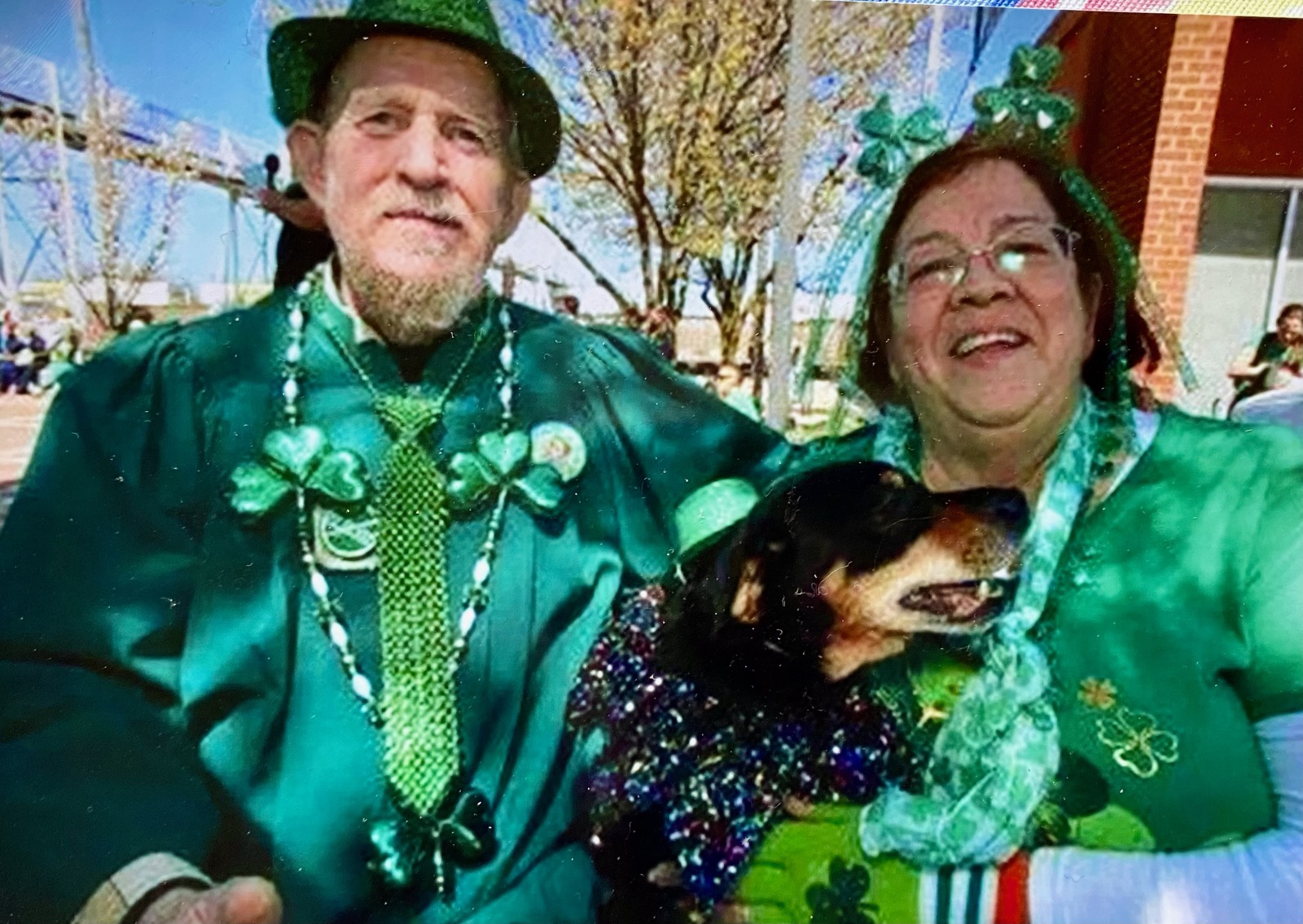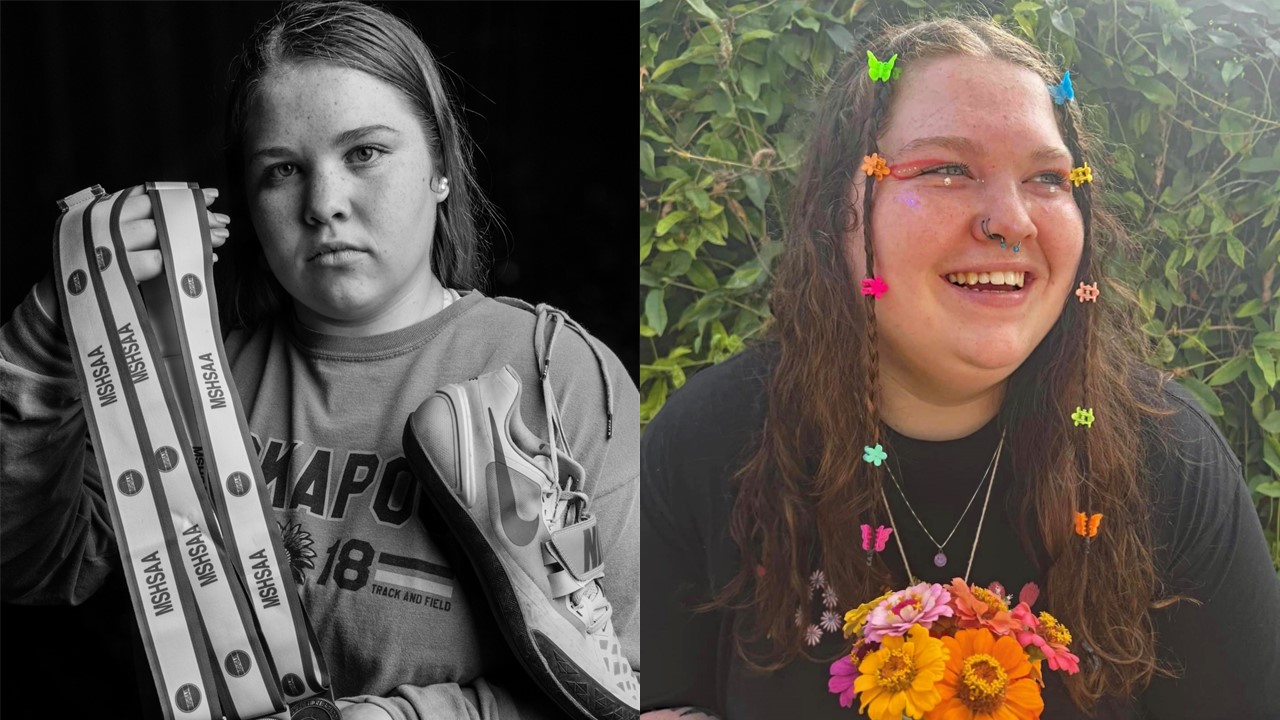Don Underwood was the consummate behind-the-scenes guy who made big things happen with little public credit for himself.
His death in a traffic tragedy on Jan. 8 prompted scores who worked with Don — at the Springfield News-Leader newspaper, the Red Cross, the Interfaith Alliance of the Ozarks, the Sierra Club, Missourians for Alternatives to the Death Penalty and other activist groups — to praise him as a largely unsung hero, inspirational role model, knowledgeable teacher, loyal friend.
And to his family, he was a devoted husband of almost 50 years, a determined father and doting grandfather.
Don’s vehicle was struck by another on James River Freeway as he drove to church on that Sunday morning.
The Rev. Michelle Scott-Huffman, pastor at First Unitarian Universalist Church of Springfield, where Don was a member, says that in the hours immediately following the incident she received several inquiries asking if the victim, described in initial news reports only as a 72-year-old Republic man, was “our Don.”
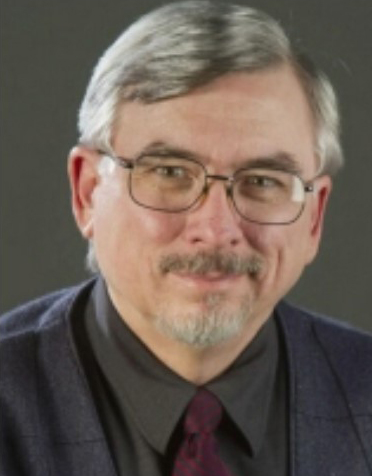
“The calls and text messages were from church members, for sure, particularly from members of the humanist groups and social action circles,” she told a standing-room-only crowd at his Jan. 14 funeral service. But they also came from beyond the congregation, places such as “the crisis cold-weather shelter where Don regularly volunteered as a laundry runner and cleaner,” she said.
Many individuals and groups considered him to be “our Don.”
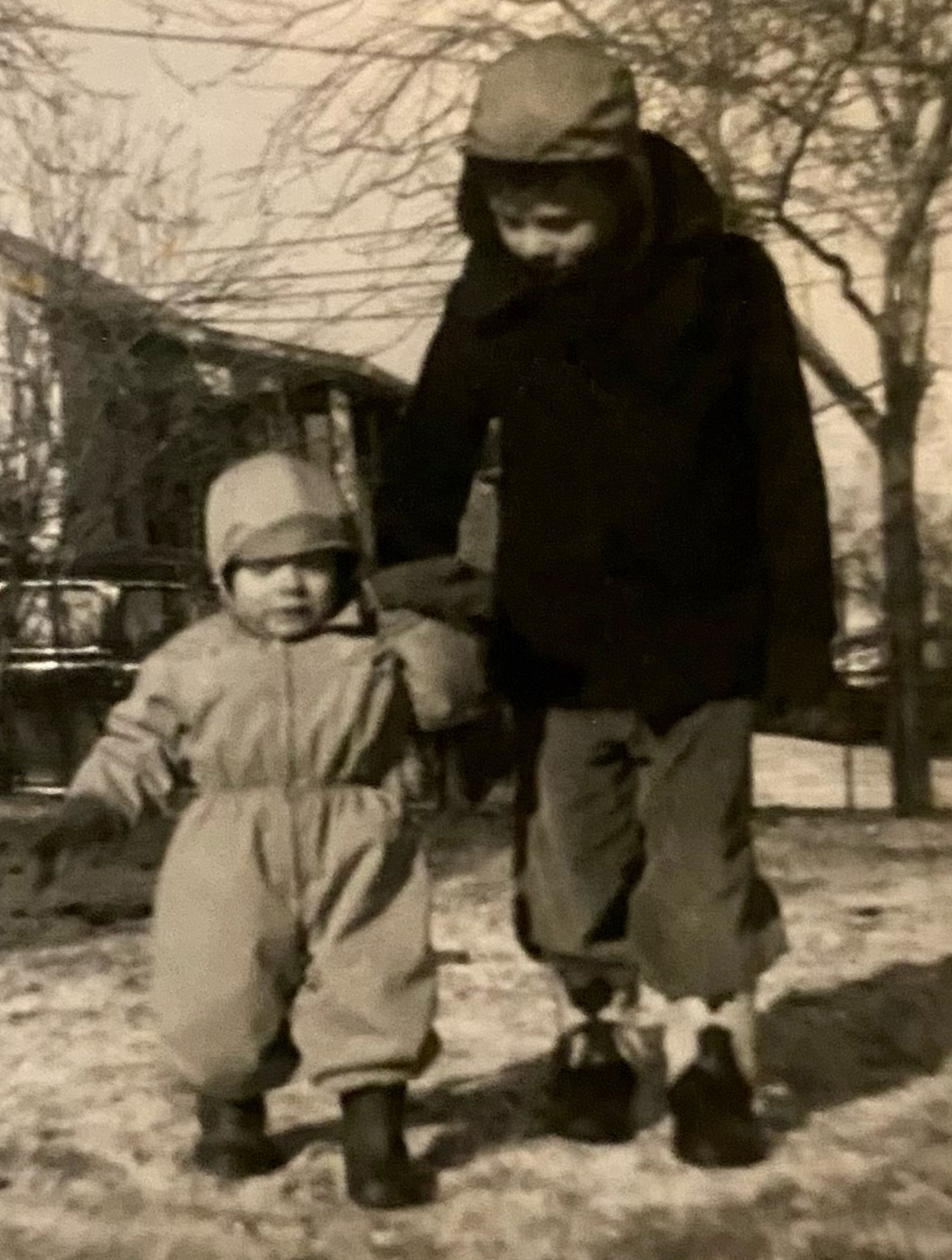
Gary Underwood, Don’s five-years-older brother who is a retired St. Louis attorney now living in North Carolina, says Don showed special promise early as they were growing up in the St. Louis suburb of Breckenridge Hills, sons of a journeyman painter and a grocery store worker, neither of whom had been able to finish high school in the depths of the Great Depression of the 1930s.
“Don was smart, very smart,” asserts Gary. “We had a set of Encyclopedia Britannica at home, and if I was interested in something, I’d find the right book and just look up that one subject. But Don would sit down and read the book from cover to cover. He must’ve read all of them, the entire set.”
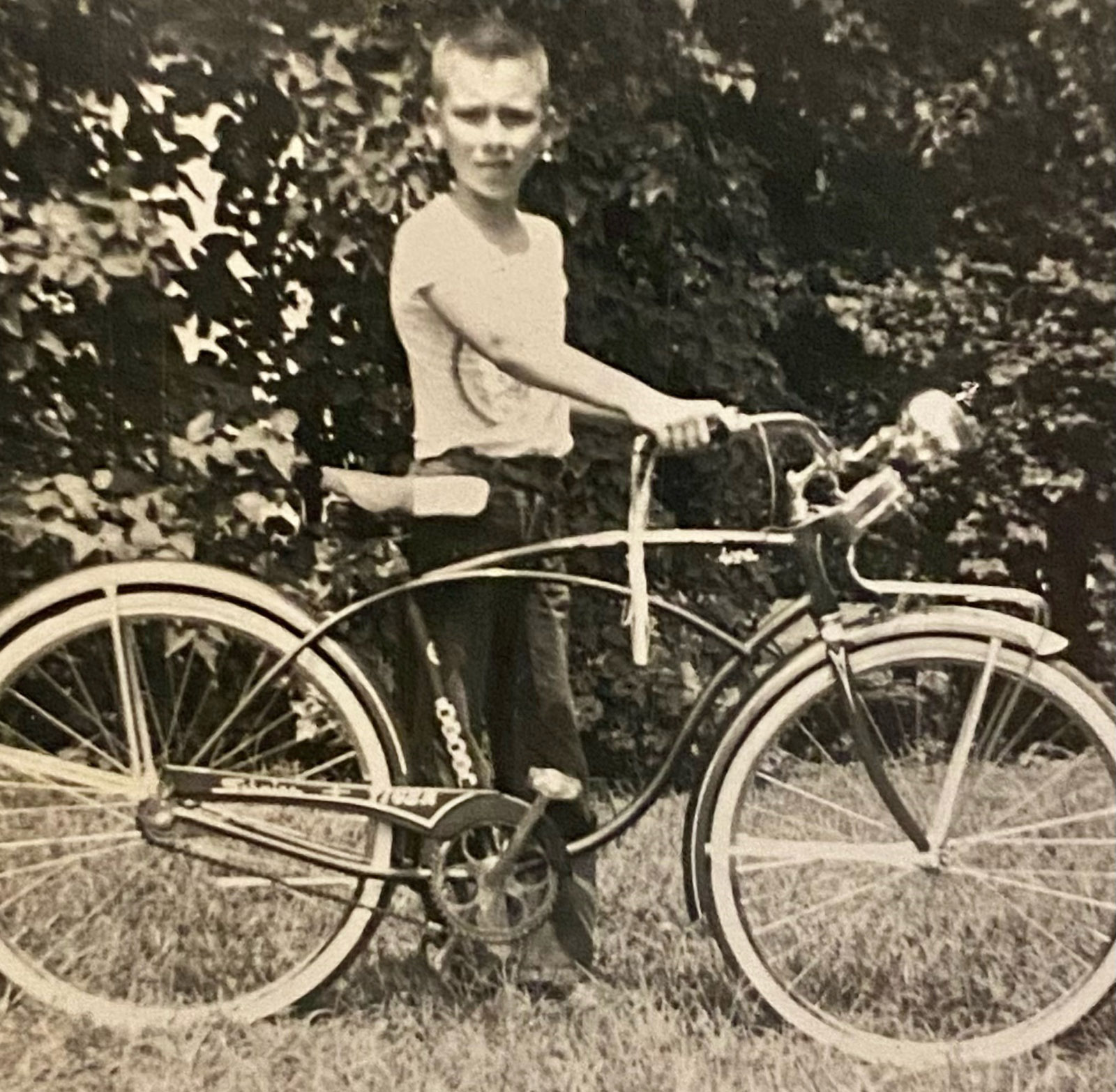
A boyhood pal who remained a lifelong close friend, Harold “Buzz” Schaffer, an aviation and aerospace consultant who now lives in Colorado, says he, too, got early indication that Don was special.
“Don was always a thinker. When we got old enough to go into Boy Scouts, I said, ‘Hey, I think this scouting thing might be a good deal. Why don’t we try it,’” Schaffer recalls, admitting with a chuckle that he was mainly attracted by the uniforms.
“Don goes, ‘I’ll get back to you in a couple days.’ When he did get back to me, he said, ‘Yeah, you’re right — scouting is a good deal. We’ll do that.’
“I asked him, ‘What took you so long to make up your mind?’ And he said: ‘I had to look at their principles.’”

Later, as they finished high school in 1968, Schaffer resisted parental urgings to go on to college. “I’m done with school,” he told his mother. “I want to chase women and have a good time.”

However, Schaffer says, “That’s when Don rightly pointed out: ‘Buzz, the girls are in college.’
“Don changed my life. Without him, I never would’ve gone to college. I would not have met my beautiful wife. I would not have become a naval aviator and had the career I’ve had.”
Don didn’t hesitate to enroll at the University of Missouri-Columbia. After earning his Bachelor of Journalism degree in 1972, he signed on as a copy editor with Springfield Newspapers. He spent the next 40 years in a variety of roles that won him the gratitude of scores of newsroom colleagues.
‘A sense of calm that radiated out'
Everett Kennell worked with Don at the newspaper for some 35 years. “Don was very talented and knowledgeable, but he was also easy to work with,” says Kennell.
“He had a sense of calm that radiated out. A newsroom can be such a hectic place sometimes. Don could calm down the atmosphere around him. And that was a real plus in the newsroom.”
That sentiment was echoed by many other fellow journalists.
“Don was a cool and calm presence as an editor,” recalls former reporter Bob Edwards. “He provided a much-needed counterpoint to stressed-out and sometimes volatile reporters — like me — trying to write in an even-handed manner about serious, controversial events while facing a hard deadline.
“Don was steady and unflappable, and asked good questions to clarify muddled prose a reporter had turned in.”
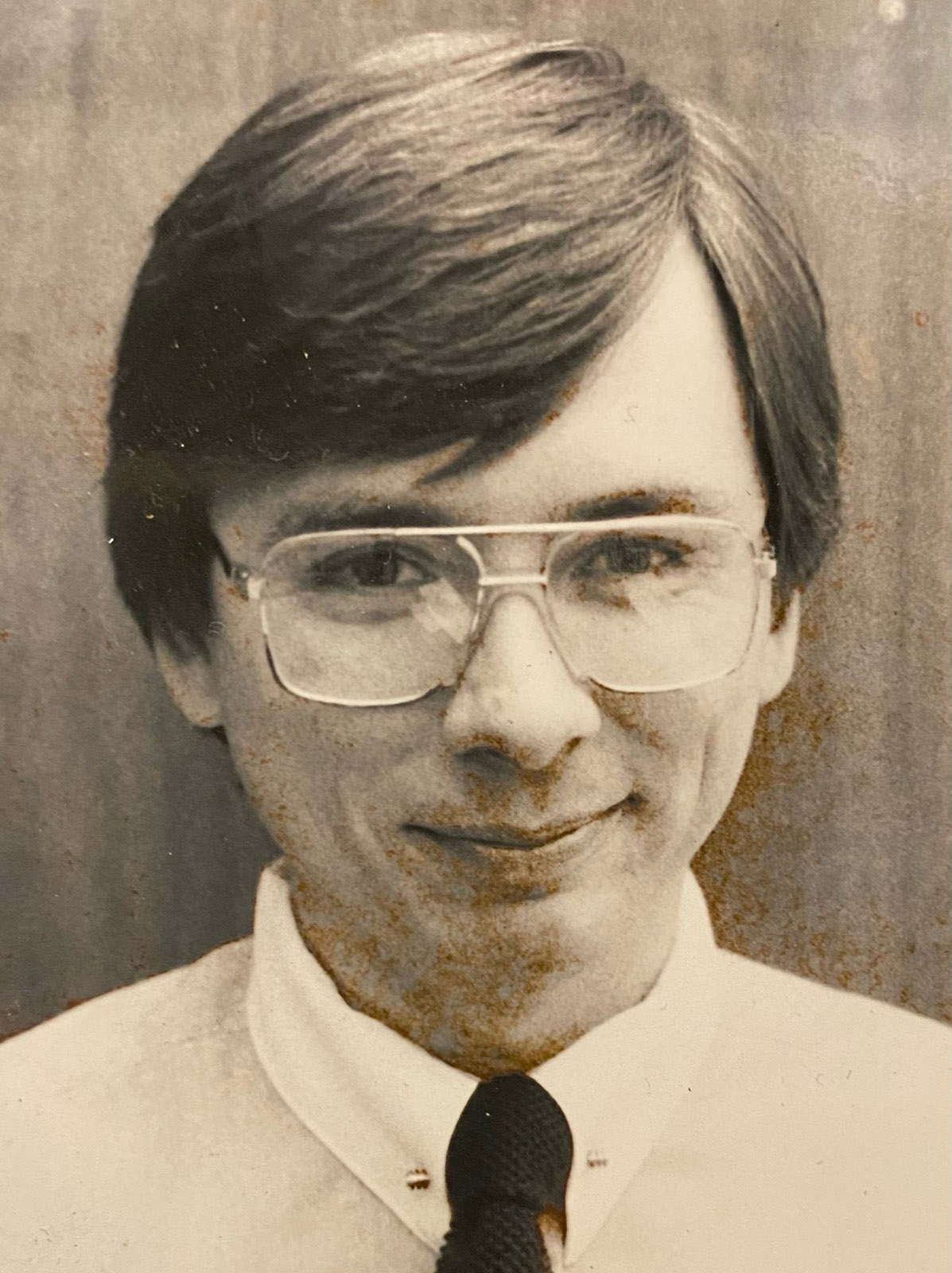
Another former reporter, Jim Wilder, remembers Don’s soft-spoken manner.
“When he had questions about a reporter’s article, he’d talk to them quietly with suggestions. He never demeaned them.”
Photographers such as former photo department chief Bob Linder appreciated Don’s professional approach as well.
‘Kept the plates spinning'
“A lot of us got our names in the paper on a daily basis; we got a lot of credit,” Linder notes, praising the work Don performed without getting a byline. “Don was one of those who connected the dots and kept the plates spinning in the complicated job of gathering, presenting and producing a printed paper that could be delivered every single day — for a lot of years, twice a day.
“Don was one of those smart, competent people who the rest of us depended on to make us look good. He was intelligent, truthful and calm — a great guy to work with.”
In the late 1980s, Don became the newsroom’s computer guru, training reporters and editors how to use advanced digital equipment. He shepherded the transition from using computers to write individual stories that had to be manually pasted onto page forms to the more complicated process of designing and outputting fully populated pages electronically.
“Don loved diving into new technology developed for newsroom use, and willingly helped us learn how to function in the digital world,” says Edwards.
Former sports editor Steve Koehler agrees: “We could always look to Don for leadership and help and his knowledge and expertise.”
That sentiment is endorsed by former features editor Jan Peterson: “He really earned his wings in the newsroom during the transition to the pagination system. Don and a handful of other trainers managed to get us up and running in a fairly short period of time without anyone crying or quitting.
“Despite being surrounded by high-strung managers who would at times address concerns loudly, Don never once lost his cool or raised his voice…Never before and never since have I met a more patient human being — kind, encouraging, unfailingly helpful and positive.”
‘A bright, inquisitive mind and a quiet passion'
When David Stoeffler joined the News-Leader as executive editor in 2010, he promoted Don to his final job as the newspaper’s opinion editor.
“At first blush, Don came across as one of those classic ‘Steady Eddie” types that every newsroom needs — patient, strong copyediting and computer skills, willing to help with whatever needed to be done,” recalls Stoeffler, who now is chief executive officer of the Hauxeda.
“What I discovered was a man with a bright, inquisitive mind and a quiet passion for making our community, our state, our nation and our world a better place. While he was uncertain that he was the right person to take on the duties of opinion editor, to me he was a perfect choice: a Missourian through and through.”
Don carried his signature traits from the newspaper to several volunteer positions and social activist endeavors following retirement as a full-time journalist.
One of the first agencies to benefit from his willingness to pitch in was the Southern Missouri Chapter of the American Red Cross, headquartered in Springfield.
Volunteer with Red Cross Disaster Action Team
“Don volunteered in our disaster and public affairs programs for many years, and deployed in response to disasters across the country,” says Stacy Burks, chapter executive director. “Don’s desire and willingness to help individuals recover following a home fire or other disaster, and to tell their story through his writing, made a difference in so many lives.”
Nigel Holderby was the chapter’s director of public affairs when Don signed on. Despite his background in journalism, “Don didn’t join to work in communications — but when his background with the News-Leader became known, he was guided to me,” Holderby recounts.
“Our agreement was that he still would be able to respond to home fire calls and be active with the Disaster Action Team. It was the perfect opportunity for him to offer direct support to the community and then use the communication platforms to share his experiences. He managed the regional blog for several years, and wrote firsthand accounts of what it was like to be a responder and help people.”
Ann Liles, a volunteer leader, notes that “volunteers get called out at all times of the day and night. I cannot remember a single instance of calling Don and him not immediately saying, ‘Yes, I’ll go.’ He met every circumstance with quiet strength and kindness.”
Holderby says she benefited by witnessing Don’s personal conduct: “Don believed in, and lived, an exemplary life of humanity, impartiality and neutrality. Don taught me to always be the calmest person in the room, to never be too proud to ask for a second set of eyes on my work, and to be an advocate for what is right and good.”
Don’s conduct of his life attracted attention and admiration from others with whom he associated.
“What stood out to me about Don was he was so quiet and so humble in his approach,” says Carl Haworth, who served with Don on the executive committee of the Interfaith Alliance. “Don didn’t speak a whole lot, but I could see that being at ease with people, and taking the time to listen as well as speak, can be such a virtue.
“In his own way, Don was a dynamo. He didn’t want to be a leader as such. He wanted someone else to take the lead — and he would fill the roles that needed to be filled,” says Haworth.
‘He was constantly lighting up the world around him'
That fits with longtime buddy Schaffer’s assessment:
“Don was a lamplighter. He was constantly lighting up the world around him. Don did this so we wouldn’t go bumping into things in the dark — so that armed with knowledge, we could make better choices.
“Don didn’t punch holes in the darkness to lead us,” says Schaffer. “Don punched holes in the darkness so we could see for ourselves.”
Jim Wood enjoyed weekly lunches with Don over the past decade. He says Don delighted in taking him to unusual restaurants — “Some were scary, but I survived” — in search of the perfect burrito, the ideal cheeseburger, the smoothest local craft beer, as well as exotic dishes.”
The two bonded over tragic circumstances. Wood is the father of Craig Wood, who was convicted in the 2014 kidnapping and murder of 10-year-old Hailey Owens. Craig Wood was sentenced to death and is awaiting execution. Don and Marla became active in Missourians for Alternatives to the Death Penalty and wrote a guest opinion in 2016 in the News-Leader. “Certainly, Hailey and her family deserve justice. But there is no justice to be found in the death penalty,” Don wrote.
“Wisdom and compassion were at the forefront of every one of Don’s thoughts,” Wood found. “Love and truth were his foundational principles. Also, the inherent dignity of us all.
“These were not only Don’s canons; they were the ideals that he lived by. And he demonstrated them in all the things that he did. Getting up in the middle of the night to go help someone who had a fire in their home, working in a church food pantry for 20 years — those things were inspirational to me.”
‘His ideas were unifying'
Navi Grewal got to know Don recently as they both were involved with the Interfaith Alliance.
“He was very friendly, very kind — you could tell that right away,” she says. “And he was very passionate about leaving a legacy for his children and grandchildren, so he was one of the leaders in our group for planning Earth Day.
“His ideas were unifying. He wanted to bring people together in any ways that he could. Although in the Alliance it was faith that was bringing us together, beyond faith he emphasized that we are one.
“Don made an incredible impression on me and others,” Grewal adds. “His character, his personality — he had done so much but yet he still was so humble. He was a gentleman, a true gentleman. He made a difference in so many lives.”
News-Leader colleague Bil Tatum says that what struck him after he and Don retired from the newspaper on the same day about 10 years ago was “how Don transferred his passion for justice to the world outside journalism, and how scrupulous he had been as a newsman to balance his personal beliefs with the need to reflect the whole community.
“In retirement, Don embraced progressive political causes — but you’d never have known his personal position on those issues by the way he edited copy or ran the editorial page. Don made sure reporting was balanced and that all sides of an issue were included, even those he might’ve deplored — especially those, I suspect.”
Edwards said it was no surprise to him that “after Don retired he became a Red Cross volunteer and got active in the Sierra Club to help protect the environment of the Ozarks that he so loved.”
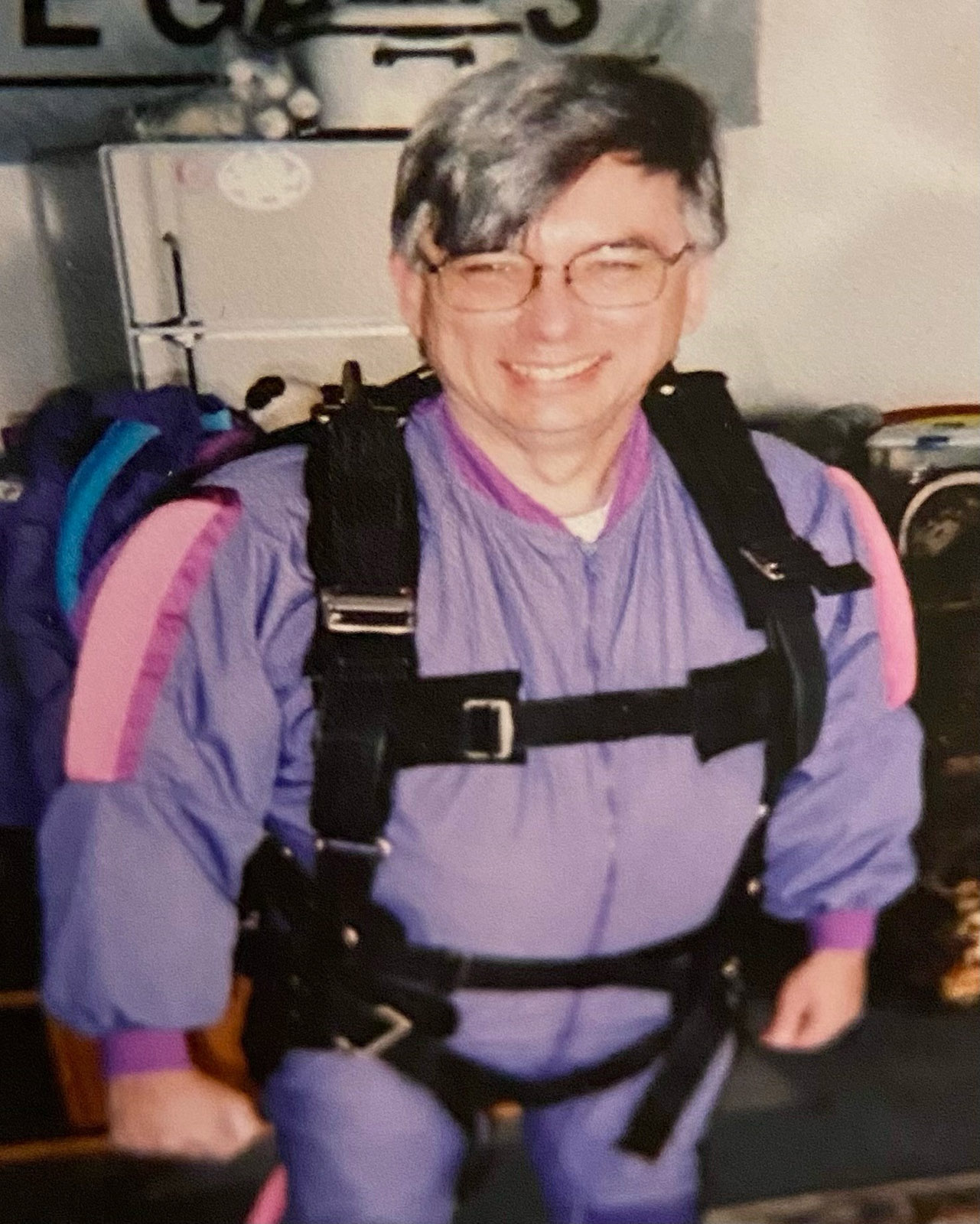
Those qualities are mirrored in daughter Lara and son Matthew that he and wife Marla produced. (Another son, Damon, died in 2000 at age 21 in an automobile accident while stationed in Texas with the Army.)
Matthew, who called Don “Pop,” says his father “taught me to be kind and thoughtful. He taught me to question things. He taught me how to be objective. He was a journalist, and he loved science — and that impacted me.”
As System Director of Quality Improvement and Research at Burrell Behavioral Health, Matthew says his job is “to apply scientific research principles to help improve community health through a nonprofit. I learned to love science from my dad. To us, journalism and science had many similarities.”
Matthew adds that Don “knew that every human being, no matter who they were, no matter what they’d done, deserves basic kindness and basic respect — because they have hopes and dreams just like he did.”
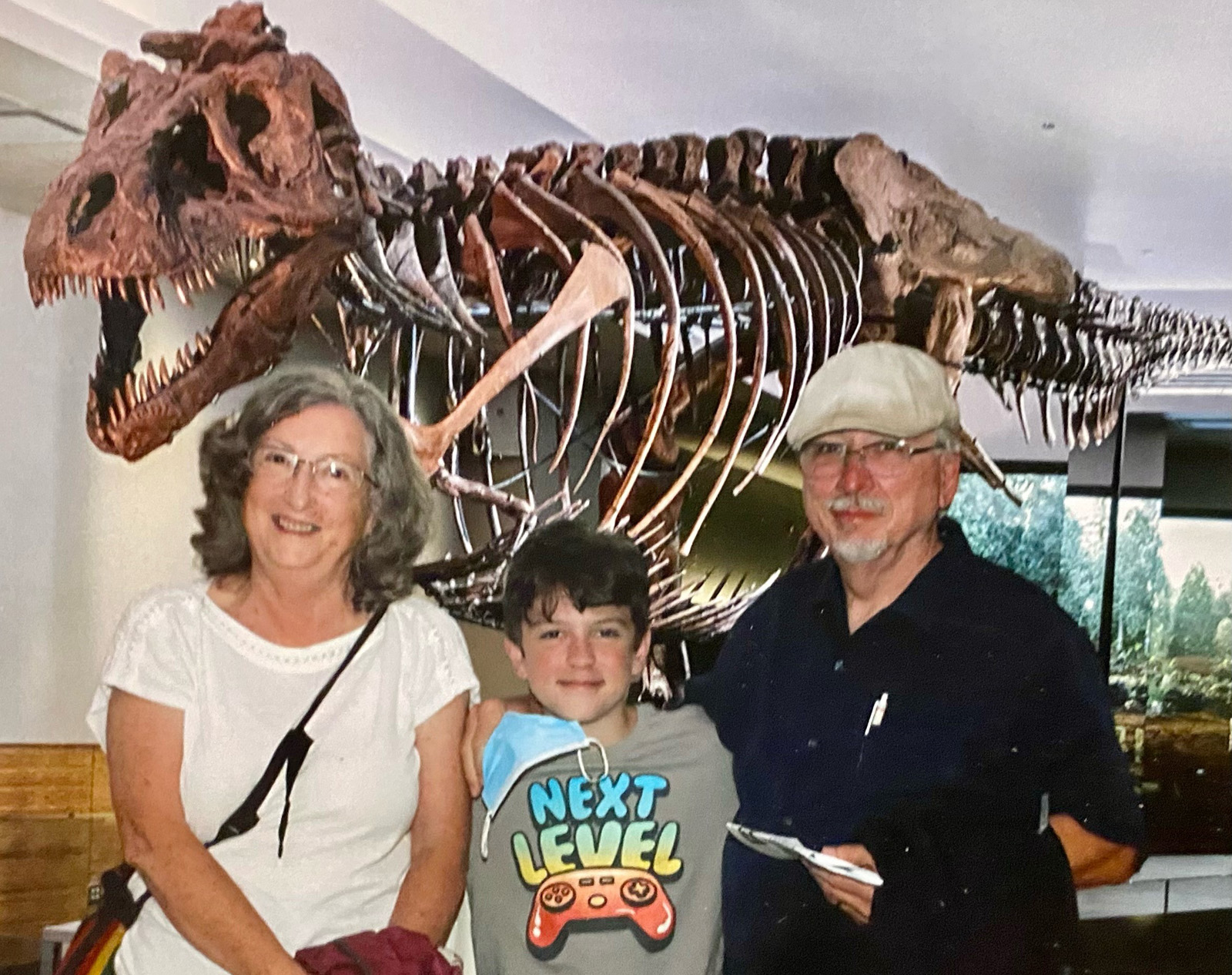
Lara, an attorney in Jefferson City, says that Don “was always just there when we needed him. And he was very affectionate — I always got a hug, I always got a kiss.”
She has fond memories of going to St. Louis Cardinals baseball games with her dad, and on vacation driving trips. One such journey, to Colorado when she had just turned 16 and earned her driver’s license, is especially memorable because, she recalls with a laugh, her father “let me drive across Kansas, probably because there’s nothing to hit.”
She says Don frequently took the family to museums. “He always had to read every single plaque for every single piece of artwork — read it out loud — and as kids we absolutely hated it because we we were like, ‘OK, we saw it, that’s cool, now let’s go look at something else, we don’t need to know the history of it.’
“But then,” she adds with a chuckle, “I took an art history course in college — so apparently something rubbed off.”
So did other things:
“In the mornings when Dad would drive us to school — he drove us to school a lot — he would listen to NPR on the car radio And I’d say, ‘Oh, let’s listen to music! Put on some good music!’ But he insisted on listening to news on NPR.
“And now what do you think I listen to every morning on my way to work? NPR! When I started doing that maybe 20 years ago, I said to myself: ‘Oh, I truly am my father’s daughter.’”
Lara said Don’s parenting style has influenced her own parenting style. “I’m probably more patient with my kiddo because of Dad. He wasn’t a yeller or a screamer.”
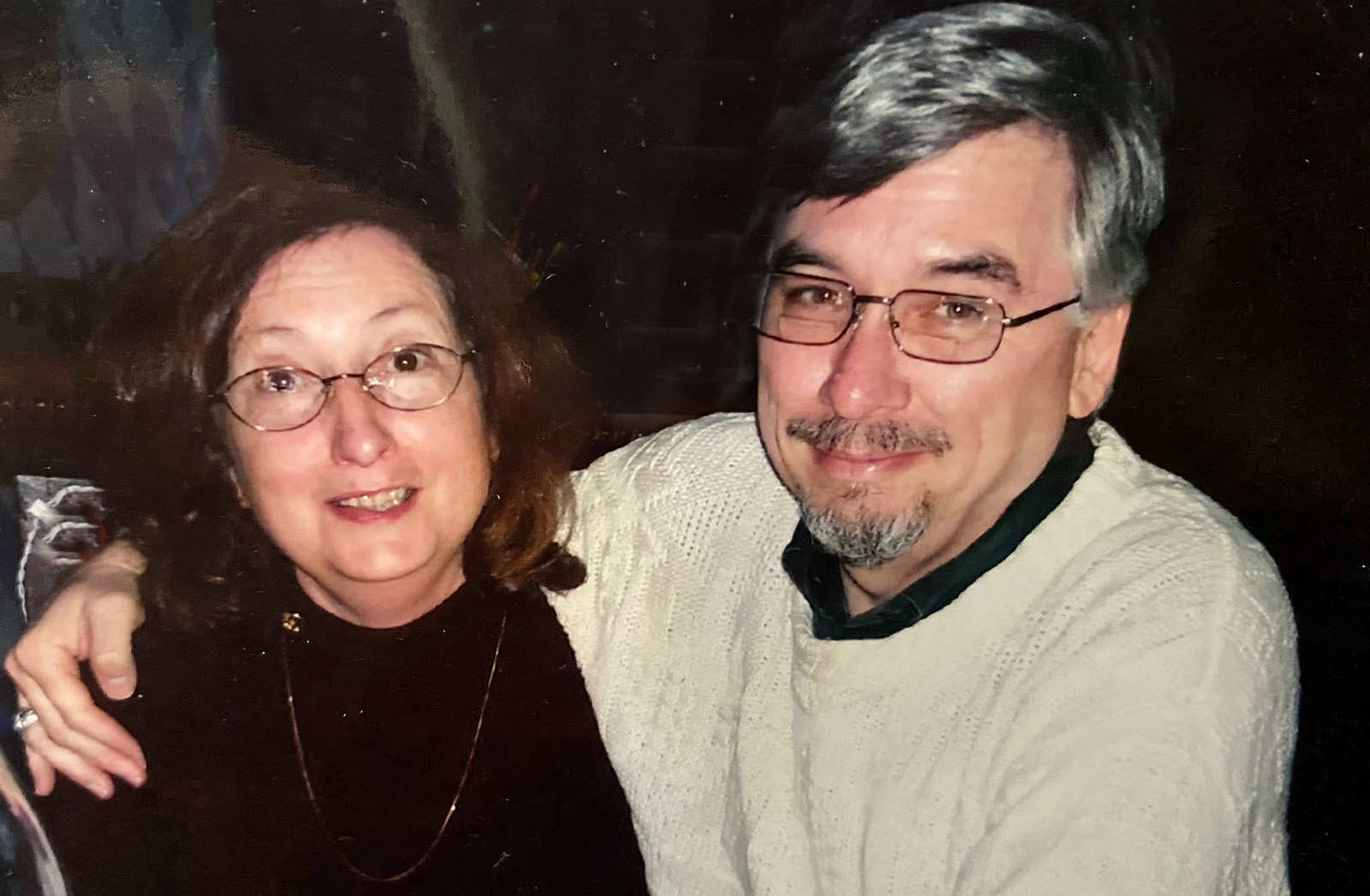
Former colleagues say Don was vocal about his home role.
“Don was a dedicated family man,” says Edwards. “It didn’t take much to get him talking, with quiet pride, about Marla and their kids.”
Marla worked alongside Don in many of his activist endeavors. The family had been looking forward to this St. Patrick’s Day, March 17, to celebrate their 50th wedding anniversary.
“Don led a full life,” laments Kennell. “But he still was living it. He had a lot left to do…”
Editor's Note: “Lives Remembered” writer Mike O'Brien was a longtime colleague of Don Underwood at the News-Leader. In addition to Don's many admirable qualities and accomplishments cited by others in the story, O'Brien feels a special debt of gratitude to Don because Don was willing to step in and take over responsibilities associated with the newsroom computer systems that O'Brien had carried for 10 years, thus smoothing the path for O'Brien to resign his position as associate editor of the newspaper in 1987 and begin a new career as a college journalism instructor.


